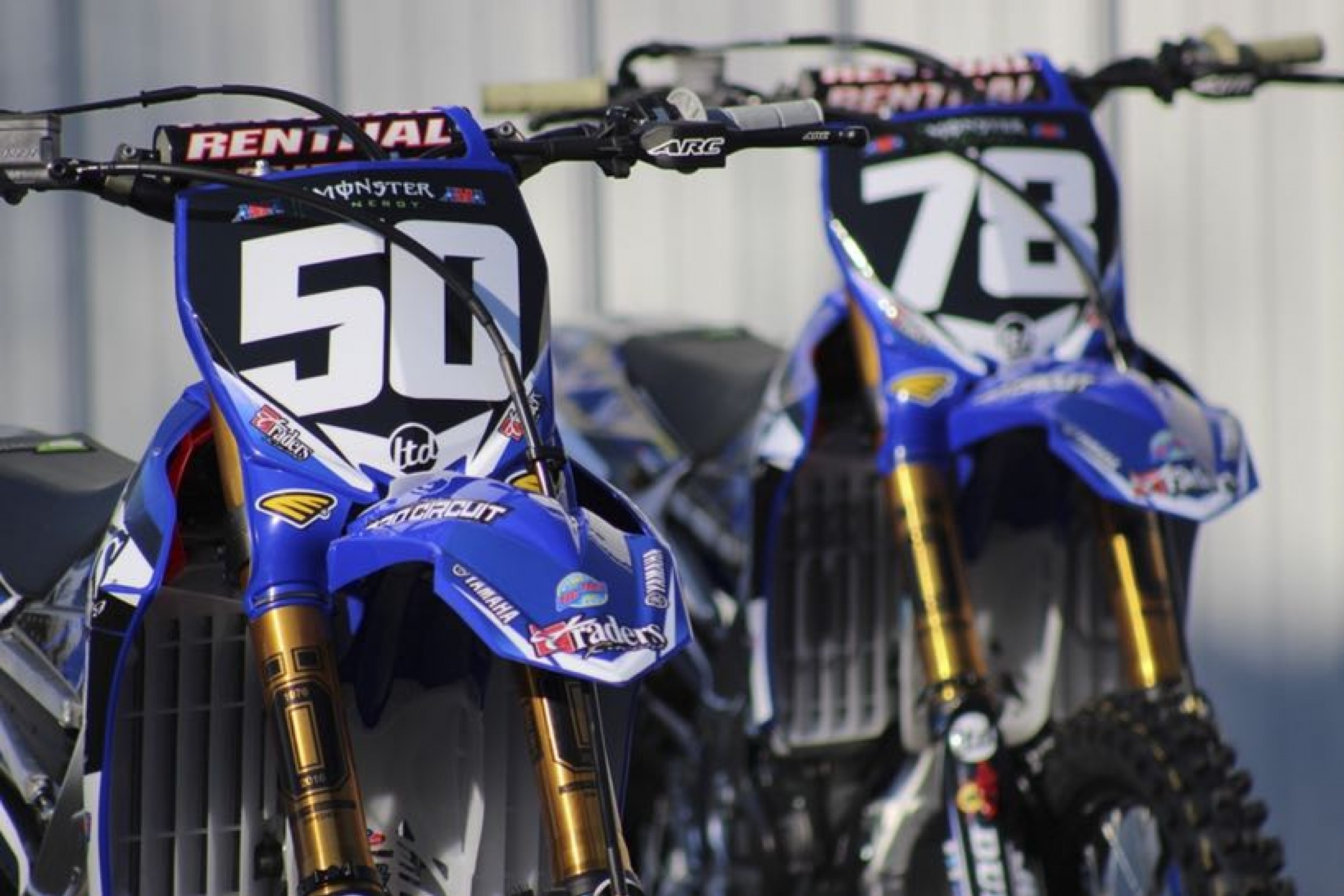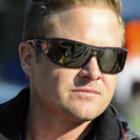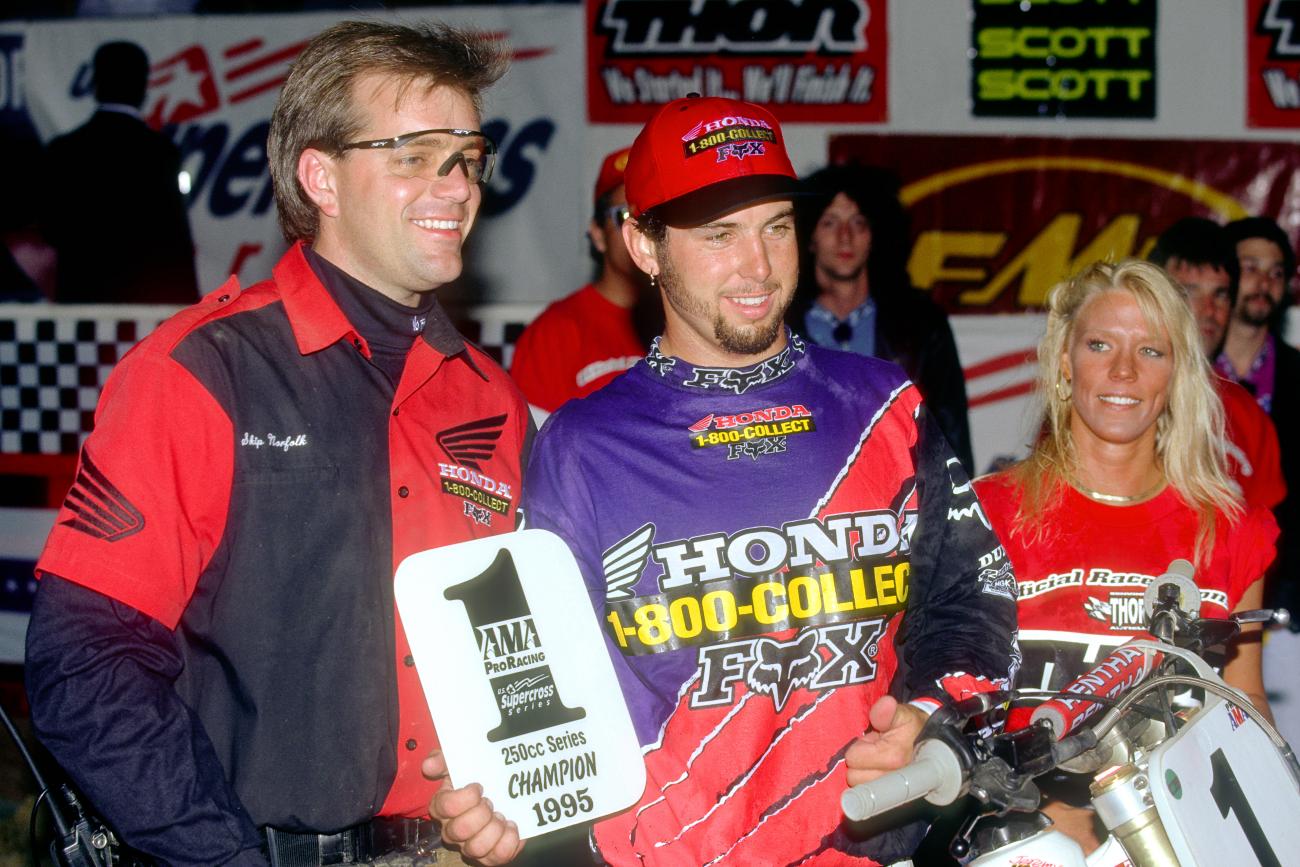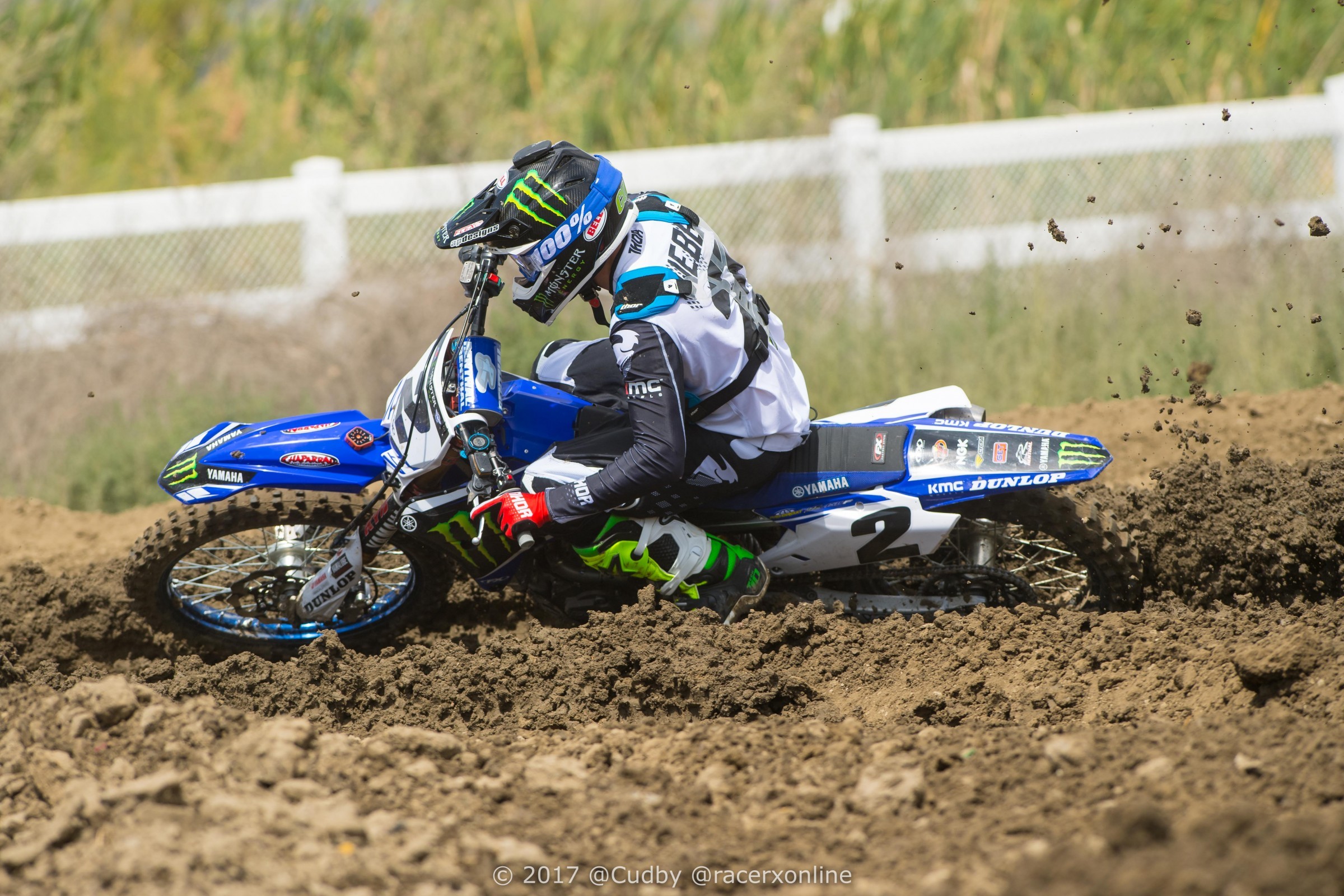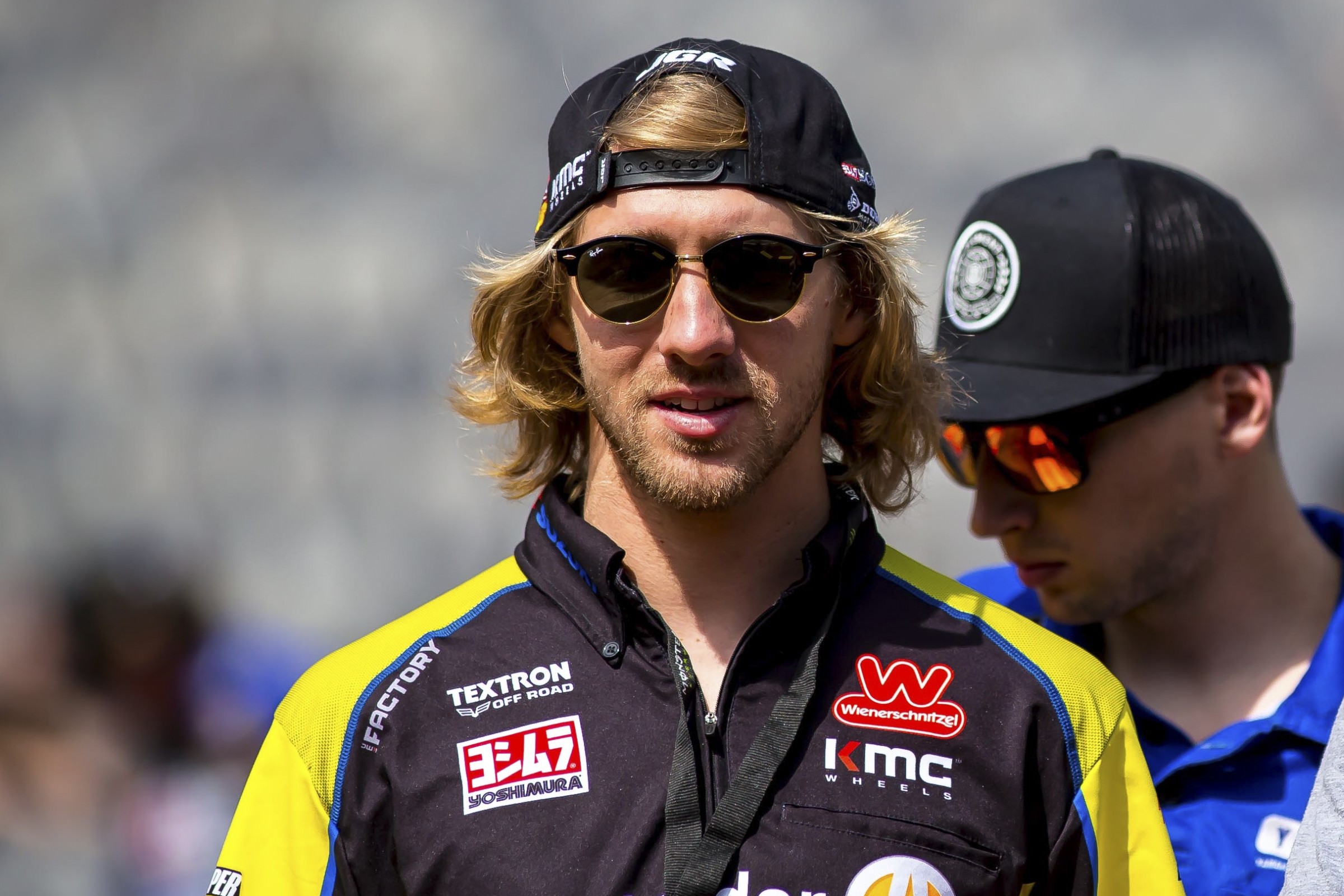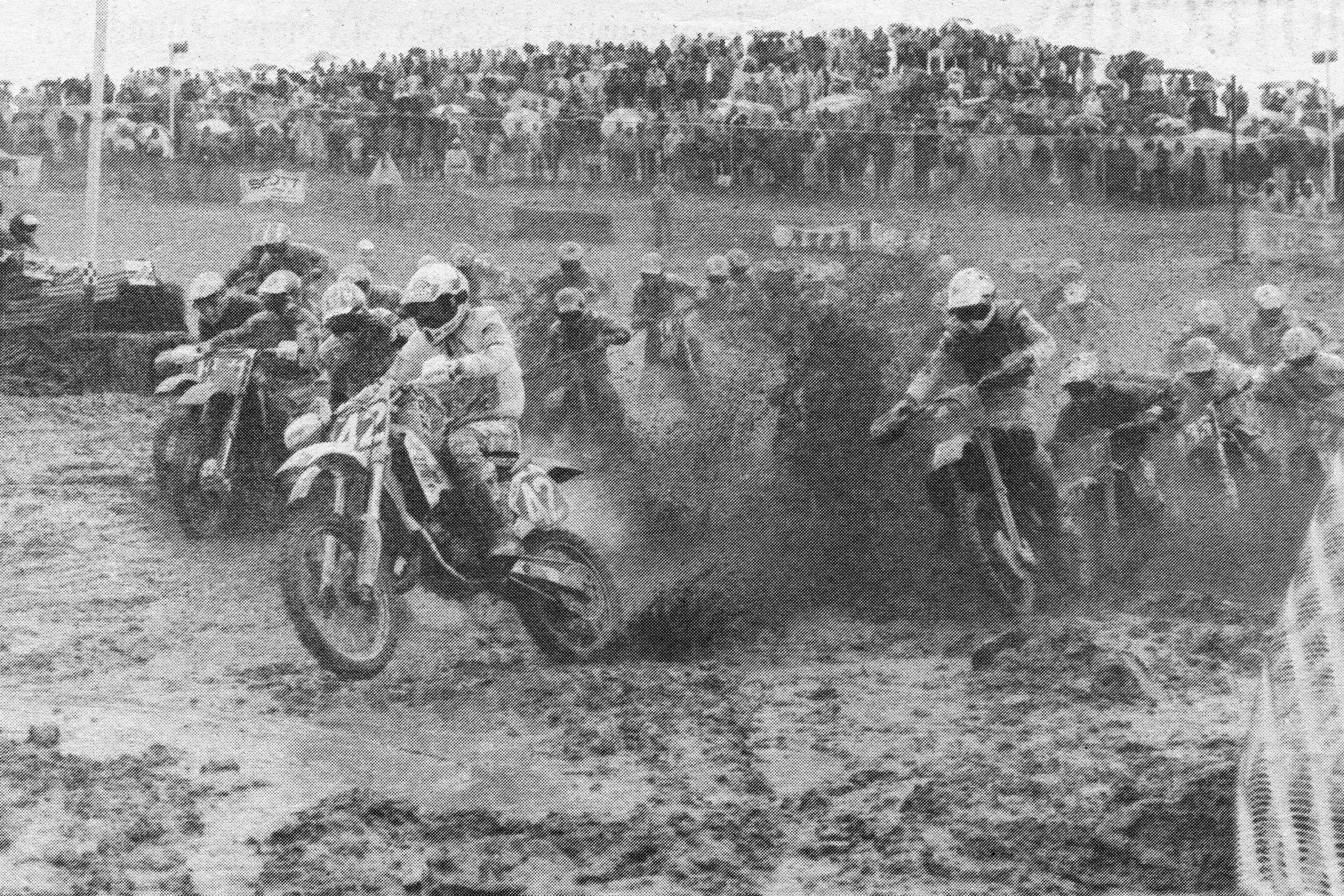Traders Racing Yamaha continues to grow its presence on the track and in the pits, and heads into Lucas Oil Pro Motocross 250 Class with Luke Renzland and Nick Gaines hoping for results, and amateur Jayce Pennington heading to Loretta’s. The team has some additional credibility, though, with Skip Norfolk, the long time mechanic for Jeremy McGrath, on board as the race director.
Along with team manager Kenny Day, Traders is trying to provide a solid stepping stone for riders transitioning into the pros. Our David Pingree recently got a chance to test a Traders race bike, and then he grabbed the recorder and asked Skip and Kenny some questions about the team.
Racer X: Skip is very well known in the industry, but let’s start with your role, Kenny.
Kenny Day: I’ve been a manager and a little bit more than a manager. I’ve been a mechanic and I’ve been the driver the whole entire time I’ve been here, so this is my fourth year with the team. Up until this year I just kind of did a little bit of everything. Now this year I’m a little more of just a manager, babysitter, mom, dad, whatever title I’ve got to be. But I’ve been here since day one. I actually was thankful enough to be sponsored by the team owner Gary Luckett when I raced. I just met Gary at a local race, local event. I started to hear about this guy named Gary at Traders and it was a restaurant. He had this big amateur program and he was just doing huge things in the scene around Maryland, Delaware, Virginia area. I just happened to be teaching one of the kids that was sponsored by him, and I said, “Man, I’ve got to meet this guy.” I met him and he was just a super awesome guy. One thing led to another and he gave me a bike. I started doing some races and whatnot. Eventually I went back to regular life and just happened to meet up with Tony Archer, who still races supercross to this day. He was sponsored by Gary. This time it was more of just an amateur effort and he did things with a few privateers here and there. I just started going to the races with Archer and kind of being his dad/mental coach at the races, working on his bikes, you name it. We had some good results real quick. Gary, the team owner, kind of jumped on it and pulled us all aside one day and said, “Hey, I think I want to start a team, like a real pro team.” He was helping some privateers, but his goal was to be in a semi at some point. Just right place, right time for me. So it’s been four years. The year that we started as an actual team, Archer won a title in Lites Arenacross. It just kind of escalated I guess. Every year it’s gotten better and learning more.
Skip, you came on last year. That was technical director?
Skip Norkfolk: Yeah, race director.
So you’re in charge of equipment?
Norfolk: He’s in charge of what we look like and getting everybody where they need to go, basically. He’s the front end, I’m the back end, I guess you would say.
Day: I couldn’t do it without him, for sure. He’s brought so much more to it than just what you can physically see.
Norfolk: We tag-team a lot of different fronts. It’s a lot of following up. A lot of cold calls. When we’re able to get people to the races, it’s like, “I didn’t realize you guys are like this.” Our guys do the exact same thing that the factory guys do. We go to the same races. It’s all the same, we just do it for pennies on their dollars. We have a budget that we have to adhere to.
How is this Gary guy now? Is he excited with the growth? Is he committed to it? A lot of times we see guys come in, they’re really excited about it, but then they realize how much money they’re spending after a few years.
Norfolk: He is, but he’s also an extremely good businessman. He’s got three or four very successful companies. When I came on it was more of a hobby and now I think he’s looking at it maybe there’s an opportunity to really do something special here. But it’s a challenge from a funding standpoint. We don’t have unlimited funds, and when we sat down two years ago, it was like, we’re not going to just go big and then stop. We had a three-year plan to try to really make this work, be professional, respectable, do a good job for our sponsors and to try to get some more funding. We’ve made monster leaps and bounds this year with funding the program. Our funding the program is a little different because we’ve been able to get some sponsors to come in and provide product and services for us to where we don’t have to spend the money. So even though we’re not getting the cash to run it, our spending is less this year by a significant amount. We have a couple sponsors that have already come on and said, “Hey, we want to do more next year.”
Day: It’s hard. I don’t know of many race teams that turn a big profit. Anything that is additional, there’s something more you can buy. There’s a better rider you can pay for. There’s better equipment you can purchase. So you have to have somebody that can’t be in it to make a profit. They have to really be in it for the love of the game, and see the marketing potential of it.
Norfolk: I think he’s proud of what we’ve been able to accomplish. He’s also very proud that he can give these kids an opportunity on a solid motorcycle. What you rode today, it’s that way every weekend. It’s not we build it once and we just run it into the ground. It’s that way every weekend, allowing them to achieve their dreams. I think for him that is what this is about, and that’s why for me it was easy to get involved because I thought that was what this sport was missing, a stepping stone program that has a solid platform. We were upfront with all of our kids. We say: “We hope that you outgrow us quickly.” We want to be able to get you to the point where you deserve a salary and you’re making some money, we’d like to be able to fund that and do that and keep you, but if these guys come through this program and graduate up, that’s the best thing we could do. Same for the mechanics. They need to learn and be able to walk through that next door and be able to handle the pressure and everything that’s going on. Yes, we want to compete with those guys, but we’re not naïve about it. It’s somewhat unrealistic that we would be able to go get the same result spending what we spend versus the three or four million dollar team.
Skip, what got you back in? I know back when you left the sport you had little kids at home, and that was a big driver in you finding something that was local so you wouldn’t have to go on the road.
Norfolk: They’re not little anymore. My youngest is a senior in high school this year. There’s almost four lives going on. My wife stayed at home and raised the kids and now she went back to school and she’s got her career in radiology in the medical field. On occasion we’d meet in the kitchen for dinner. I missed racing and I wanted to help bridge that gap. When I was working in the clothing industry we had these kids that came through that were spectacular young athletes. I refer to them as factory amateur racers. They’d be a Kawi guy or a Yamaha guy as an amateur, but they’d go to the pros and they’d have nothing. They went from full factory amateur ride to nothing. I think some of the teams, not all of them, but some of the teams would build a good product at the beginning of the year, but after four races, as things deteriorate and go down they weren’t able to maintain that. The one thing from racing that I knew in order for this to be truly successful, chassis-wise the bikes need to be identical, race and practice. Then motor-wise they’d need to be the same character but maybe just a little bit less. They can’t be two completely different motorcycles. If that happens, the guys show up at the race and they’ve got to learn their motorcycle. In timed practice they’re sitting 18th and get a bad gate pick, you never have a chance to succeed. We had a goal to put every penny we had into the motorcycle and to build a stable platform. I look at what we do and it hasn’t changed forever. Our biggest thing is to eliminate excuses, and the motorcycle is the biggest excuse any rider could have.
Who are you guys looking at down the road? Do you have these guys re-signed for next year? It’s kind of that time of year where we’re already starting to look at ’18.
Norfolk: It’s getting to that time of year. We’re not in the position to where we can buy our talent, by any stretch of the imagination. We understand that if an opportunity presents itself for these guys to get onto a factory-supported program, we’re not going to stand in their way. We usually have to wait for a few other cards to fall before we can go down that path. But we’re trying to bump it up. Our program came together really late this year. We’re trying to move it up to where hopefully by June or July we can really start to put our athletes together. Right now we love the two guys that we have. Obviously we expect more, but if you don’t expect more, why are you going to show up?
What are the biggest things you see different from the old days versus now?
Norfolk: The racing hasn’t changed. The gate drops, checkered flag comes out, the baddest dude wins, every time. I think when you start talking at the tip of the pyramid, the intensity level, the commitment, the focus, the dedication, and the sacrifice—I think that’s one thing everybody forgets is the sacrifice. To do what those guys do at that level, it’s intense. That intensity is extremely elevated from what I remember back in those days. The training program is crazy. Jeremy [McGrath] took it to another level racing, and then you had Ricky [Carmichael] and you had James [Stewart] and it was all about the technique. Then Ricky decided, screw you guys, I’m going to be the fittest dude in the world, too. And he elevated it again. It’s just been this leap frog and leap frog and leap frog, and if you want to compete at the top you have to be in epic shape—mentally more than anything else. It’s a huge sacrifice to be mentally prepared. So that part’s changed extremely, I think. The biggest thing I see, and I don’t know if it’s right—I don’t believe it is—I see these guys, especially the younger kids, all they do is train, train, train, ride. They do six big events a year. When we were coming up we raced all the time. It was, let’s go to this local race. Let’s go here. Let’s race, race, race. And there was a lot of play riding on the bikes, where I think you learn more out play riding whether you have woods or hills or whatever it is. You learn your motorcycle. The biggest thing that I see with these kids coming up, and granted there’s always an exception, but the bulk of the kids that are coming up have no idea how to race, and I think for the most part they’re not mental giants.
I remember a lot of days out riding the hills with Jeremy [McGrath] and he’d be in a creek bed and find a little lip and jump from here over to there and we’d all try to do it. We’d try to out-do each other. You really learn how to make your bike do what you want. Then like you said, the technique. You can watch guys today and you can look out on a track and go, that guy really shouldn’t be going that fast. His technique is not good, but he’s hauling because the bike lets him—until it doesn’t.
Norfolk: It’s just like any sport, I think. I love baseball so I’ll equate it to baseball. You’ve got these young kids that come up and they’re great AAA ball players. They come in and for the first say year, they kill it. But then the pitchers figure them out. In order for them to go to the next level, they have to change their fundamentals because they had some fundamental issues whether it was a swing or how they were doing it or how they ride their motorcycle that is holding them back. Because amateur racing is all sprints, it’s how fast you can go, technique doesn’t matter. How fast you go because you can hold on for four laps, eight laps. But out here it’s different. You have to be a complete program here. Motorcycle, athlete, rider, technique. If any one of those things fall short, you’re falling short. It’s such a challenge for those guys because they feel like, I’ve gotten here because I can do what I do. I go, you’re absolutely right, but what you’re doing is not going to get you where you want to go. It’s really difficult for them to mentally go, “Okay, I have to change the way I’m riding in order to do that.” I don’t remember that as much before because I think the guys actually raced more often and it was something that just naturally evolved as they continued to race. But these guys are just out burning laps. They go, “I put in six hours on my motorcycle this week.” That’s three hours too many.
There’s a little bit of quantity over quality these days. Everybody wants to work hard, which is great. I think they’re embracing that, knowing that you have to, but if you’re doing the wrong work, or doing it wrong….
Norfolk: I think about the motivation of why guys are doing it differently now. I think there’s a little bit of a rock star thing going on. I think the old guys coming up, they just wanted to be the baddest dude on the motorcycle, not a professional racer. There was different motivation for it.
Money and the popularity of the sport changed that a little bit.
Norfolk: Yeah, it did. It definitely changed it. The preparation work behind the scenes has changed tremendously. Technology does that. We’ve been fortunate that with JGR, we’ve been able to have access to those tools that we can’t afford. But we were able to put some programs together that afforded us that opportunity, and we capitalized on it. We spent three days with the JGR guys with the data acquisition on the bike. Learned a ton. So, it’s easier now that I have some data and some information. I can sit back down with Jayce, our young guy, and I can go back and show him what the motorcycle’s doing and why it’s not good to over-rev the thing. I can show him that when you miss your shift and you’re over-revving it, and you shift and the red drop comes in and you’re falling on the downside of your torque curve, you’re not making any power. You’re just making noise. I can show him that, and he’s all, “I get it now.” I did the same thing with Luke. It takes a while to get that over on some guys, other guys get it. Now when we went testing with Luke and we would do all of our testing, there’s two things you evaluate. I evaluate, because I have the data, I can find out how quickly those guys start to ride the bike where it makes the most power. Whether the rider likes that or not, is a different scenario. But I can look at the data and go, “He’s riding it where it makes the power.” I can watch another guy and go, “He’s not riding it where it makes the power.” Luke, I think the longest it took him to figure out one of the new specs we were testing was two laps. Before it would take him a long time. We’ve exposed them to some factory-level approaches of trying to make not only yourself and the bike better, but grow completely and look out of the tunnel a little bit, as opposed to just going, “I got to go fast today.”
Anything else you want to plug or mention?
Norfolk: From the team standpoint, Traders is the title, Tick Tabs is our main associate. Eagle Entertainment. Of course Ohlins. Ohlins has been a wonderful program for us. ATVs and More. With the Yamaha through the sales side and with that dealership, it’s been unbelievable. They’re just a great sponsor. They take care of us and we need something and we have it, parts-wise or things like that. So, that’s been great. Then Shot Race Gear has put together a program. They worked with us so we could take care of our sponsors from the signage standpoint. Everybody’s fighting over the same 12x12 area. They’ve been fabulous for us. Those are the main sponsorship group that fund this program. We wouldn’t be here without those guys and our staff. Wes Hunter, who’s Luke’s mechanic, and Josh and Ryan. Those guys have done a good job. They’re all young. Two years ago at Atlanta for the first supercross, not one of those guys had ever pushed on the floor at a professional race. They’ve grown tremendously. I think we’ve become a solid, reputable program. I think I could honestly look our guys in the face and go, “You’re more than capable of competing on that product.”

